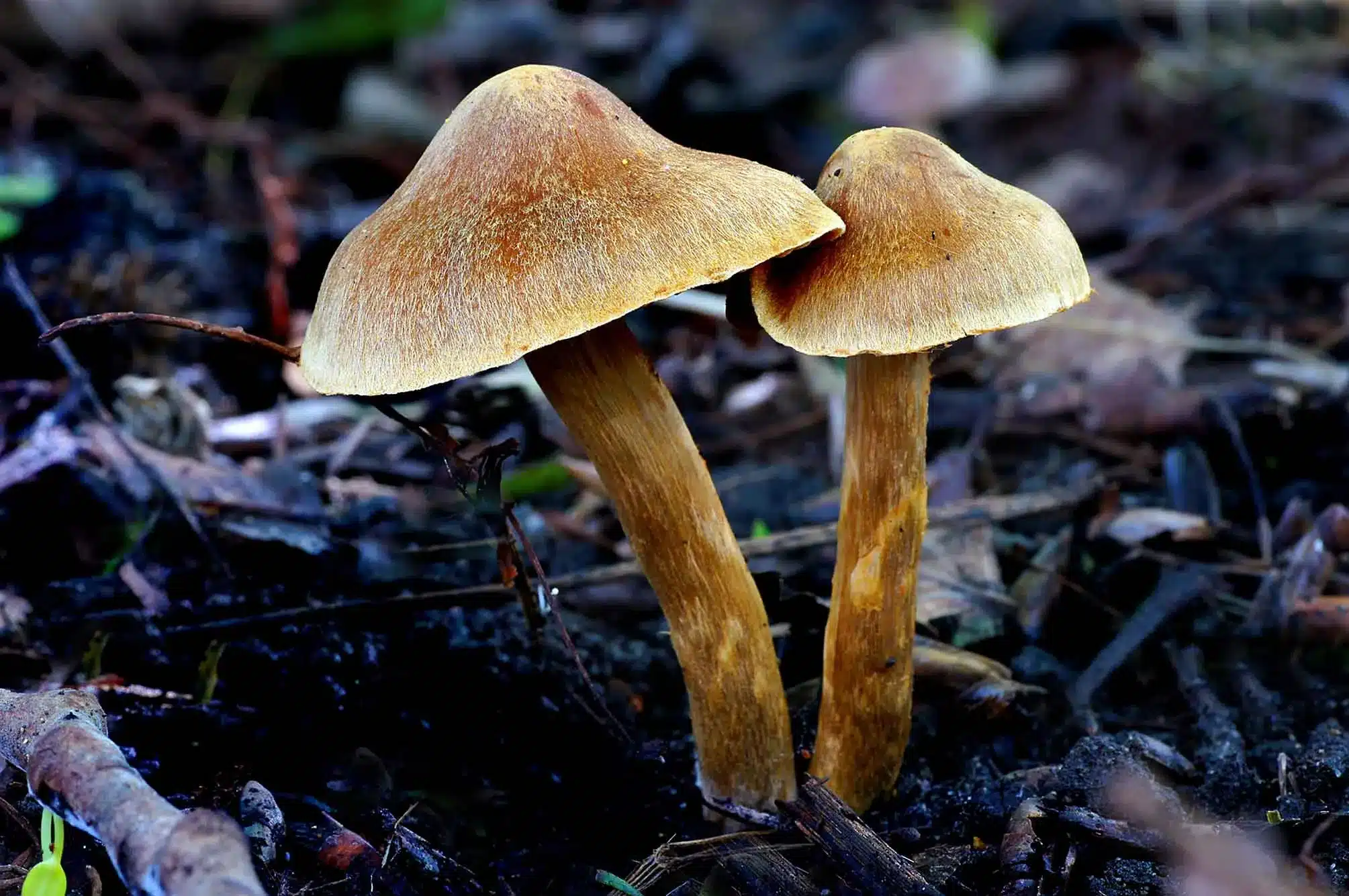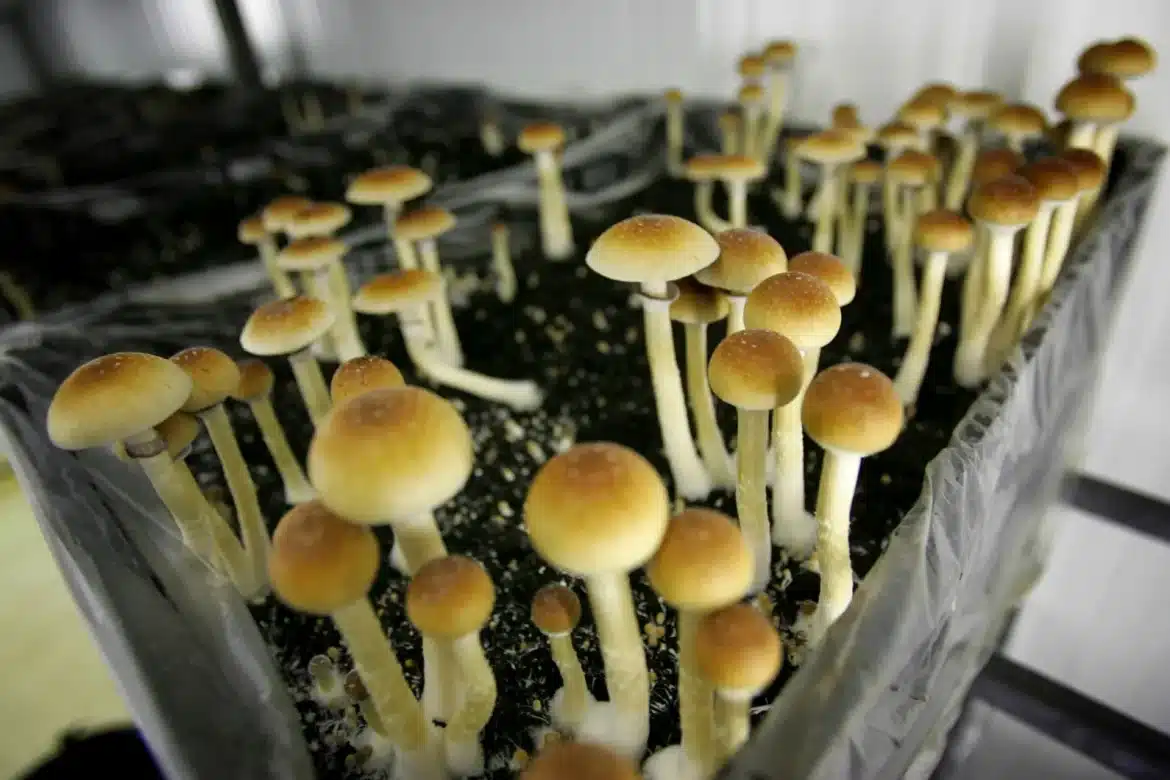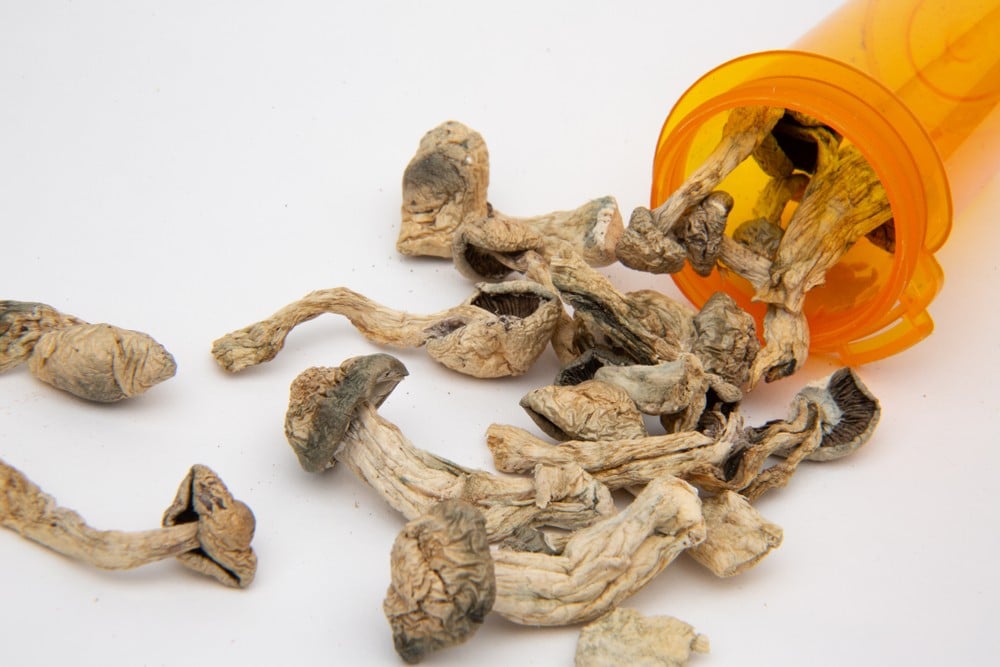Surprisingly, the online market for magic mushrooms is booming, with a significant increase in demand over the past year. Consumers seeking these psychedelic fungi for various purposes are turning to online sources for convenience and accessibility.
From microdosing enthusiasts to spiritual explorers, the availability of magic mushrooms online has revolutionized access to this natural product. With a plethora of options and information at their fingertips, consumers can now explore the world of magic mushrooms like never before.
Understanding Psilocybin and the Brain
This section will discuss how psilocybin affects neurotransmitter levels in the brain and the potential implications for mental health.
Origin
Psilocybin, the active compound in magic mushrooms online, has been used for centuries in spiritual and healing rituals by indigenous cultures in Mesoamerica. The Aztecs referred to these mushrooms as “flesh of the gods” highlighting their revered status.
Interaction with the Brain
When consumed, psilocybin interacts with serotonin receptors in the brain, particularly the 5-HT2A receptors. This interaction leads to altered perception, mood, and cognition.
Research suggests that psilocybin increases connectivity between regions of the brain that don’t typically communicate, leading to a profound shift in consciousness.
Therapeutic Effects
Studies have shown that psilocybin may have potential therapeutic effects for various mental health conditions. It has demonstrated promise in treating depression, anxiety, PTSD, and addiction. Psilocybin-assisted therapy sessions, conducted in a controlled setting with trained professionals, have shown remarkable results in helping individuals navigate and overcome psychological challenges.
Exploring Psilocybin’s Interaction with Receptors
The interaction of Psilocybin with receptors is crucial in understanding its effects:
- Psilocybin binds to serotonin receptors in the brain, specifically the 5-HT2A receptor.;
- This binding leads to altered perception, mood, and cognition.;
- Research suggests that Psilocybin’s effects are primarily due to its interaction with these receptors.
Understanding this mechanism can provide insights into the potential therapeutic applications of Psilocybin.
Types of Receptors Affected
Psilocybin primarily interacts with serotonin receptors, specifically the 5-HT2A receptors in the brain. These receptors are crucial for regulating mood, cognition, and perception. Psilocybin affects other serotonin receptors like 5-HT1A and 5-HT2C, contributing to its psychedelic effects.
Psilocybin also influences the glutamate receptors, particularly the N-methyl-D-aspartate (NMDA) receptors. By modulating glutamate transmission, psilocybin can lead to altered sensory perceptions and cognitive processes.
Mechanism of Action on Receptors
When psilocybin enters the body, it is converted into psilocin, which then binds to serotonin receptors. This binding results in increased neuronal activity, leading to changes in perception and mood. The activation of serotonin receptors, especially 5-HT2A, triggers a cascade of events that ultimately produce hallucinogenic effects.
By interacting with glutamate receptors, psilocybin disrupts the normal functioning of glutamate, affecting communication between neurons. This disruption contributes to the unique sensory distortions experienced during a psychedelic trip.
Implications of Receptor Interactions
The interaction of psilocybin with serotonin and glutamate receptors offers insights into its therapeutic potential. Research suggests that targeting these receptors could help in treating conditions like depression, anxiety disorders, and substance abuse. Understanding how psilocybin affects these receptors is crucial for developing safe and effective treatment options.
Delving into Psilocybin’s Effect on Neuronal Activity

Influence on Neuronal Activity
Psilocybin, the active compound in magic mushrooms online, alters neuronal activity by binding to serotonin receptors in the brain. This binding triggers a cascade of events that lead to changes in neurotransmitter release.
The consumption of psilocybin results in increased neural connectivity, particularly between regions of the brain that don’t typically communicate. This heightened connectivity can lead to altered perception, enhanced creativity, and a profound shift in consciousness.
Impact on Brain Networks
Psilocybin’s impact on brain networks is profound, with studies showing that it can disrupt default mode network activity. This disruption often leads to a dissolution of the ego, increased introspection, and a sense of interconnectedness with the universe.
Consumers may experience a temporary loss of self-identity as the boundaries between oneself and the external world blur. This altered state of consciousness can provide insights into one’s psyche, leading to personal growth and emotional healing.
Long-term Effects on Neuronal Function
Research suggests that the long-term effects of psilocybin on neuronal function are complex. While acute doses can produce immediate changes in brain activity, repeated use may lead to neural plasticity and potentially long-lasting alterations in cognitive function.
Consumers should approach psilocybin use with caution due to its potent effects on neuronal pathways. Long-term consequences, both positive and negative, require further investigation to fully understand the implications of sustained usage.
Unpacking the Pharmacokinetics of Psilocybin
In this section, we will delve into how psilocybin interacts with various receptors in the brain and the resulting effects on cognition and perception.
Absorption Process
Psilocybin, found in magic mushrooms online, is rapidly absorbed in the gastrointestinal tract after consumption. It enters the bloodstream through the small intestine, where it then travels to the liver for metabolism. The absorption process is crucial in determining the onset and duration of psychedelic effects experienced by consumers.
Metabolism in the Liver
Once psilocybin reaches the liver, it undergoes a process called hydrolysis, where it is converted into its active form, psilocin. This metabolite is responsible for the hallucinogenic properties associated with magic mushrooms online. The liver plays a significant role in metabolizing psilocybin before it circulates throughout the body.
Elimination Pathways
After metabolism, psilocin is released back into the bloodstream and distributed to various tissues, including the brain. The body eliminates psilocybin primarily through urine and bile excretion. The elimination half-life of psilocybin ranges from 1.5 to 4 hours, indicating how long it takes for half of the substance to be cleared from the body.
Final Remarks
Consumers have now gained insights into the intricate relationship between psilocybin and the brain, understanding its interaction with receptors, effect on neuronal activity, and pharmacokinetics magic mushrooms online.
These sections have shed light on the profound impact of psilocybin on neural processes, highlighting its potential therapeutic applications and the need for further research in this promising field. By delving into these aspects, consumers can grasp the complexity of psilocybin’s mechanisms and its implications for mental health treatment.
To continue exploring the transformative potential of psilocybin and stay informed about the latest developments in psychedelic research, consumers are encouraged to engage with reputable sources, participate in discussions, and support ongoing studies in this evolving field. Embracing a proactive approach to understanding psychedelics can lead to valuable insights and contribute to the advancement of mental health care practices.


